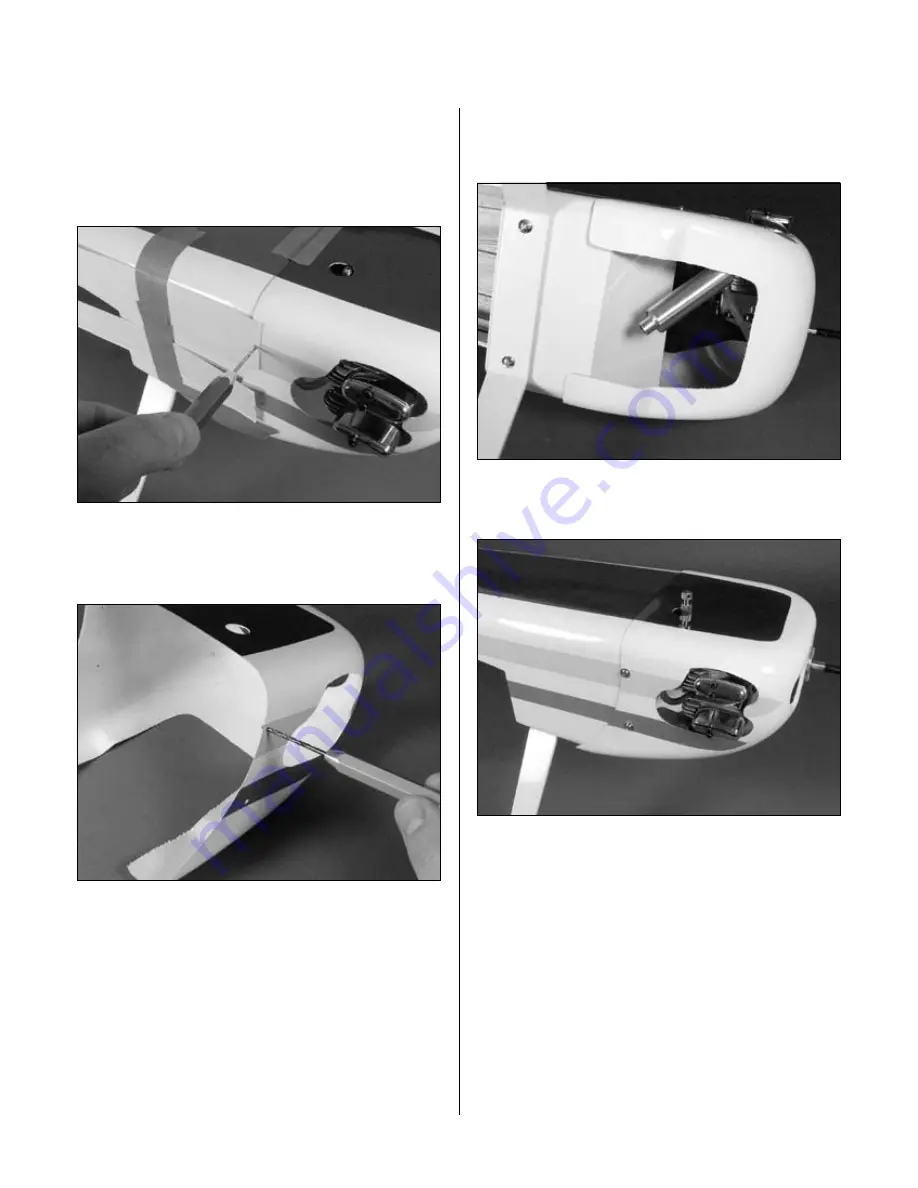
23
Step 5
Use the cardstock from Step 1 to locate the positions
for the cowling screws. The goal is to drill into the
firewall for the four screws that hold the cowling.
Drill the locations using a 3/32" (2.5mm) drill bit.
Step 6
Enlarge the holes drilled in the cowling
using a 1/8" (3mm) drill bit.
Step 7
Apply a couple drops of CA into the screw holes after
threading the screws in a few times. This will harden the
wood and keep the screws from loosening during flight.
Step 8
Remove a section of the cowl bottom to
allow air to escape the cowling.
Step 9
Attach the cowl using four #2 x 1/2" sheet metal screws.
Step 10
Attach the propeller and spinner onto the engine.
Section 7: Cowling Installation
Summary of Contents for FuntanaX 50
Page 33: ...33 Notes ...














































